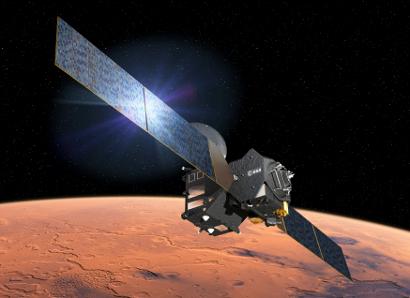OU research grant to identify potential signs of life on Mars

An OU academic has received £321,000 from the UK Space Agency, Aurora scheme to identify potential signs of life on Mars.
Dr Karen Olsson-Francis, Senior Lecturer in Ecology, who is leading the project, will identify biological volatile organic compounds (BVOCs), which could be used as a bio signatures for the NOMAD (Nadir and Occultation for MArs Discovery) instrument on-board the ExoMars Trace Gas Orbiter (TGO), which is currently orbiting Mars.
Dr Olsson-Francis, in collaboration with her colleague, Dr Manish Patel, Co-principal Investigator for NOMAD and academics from the University of Essex, will measure in-situ the BVOCs evolved from a terrestrial hypersaline site, which has elevated magnesium sulphate and a similar chemical composition to a thermodynamically modelled concentrated Martian brine.
Using both the terrestrial analogue site and laboratory simulation experiments, they will advance their ability to interpret data from NOMAD. Ultimately, this will inform on the biotic processes that could potentially occur on Mars and how these processes can be detected.
Dr Olsson-Francis said: “The grant is important for understanding potential biotic processes on Mars, and how these processes can be detected using NOMAD data. This work is timely since the TGO science phase is planned to begin in mid-2018.”
Contact our news team
For all out of hours enquiries, please telephone +44 (0)7901 515891
Contact detailsNews & articles

OU researchers lead international advances in planetary protection
Open University researchers are leading international advances in planetary protection, helping ensure that space exploration is safe, sustainable, and scientifically rigorous.